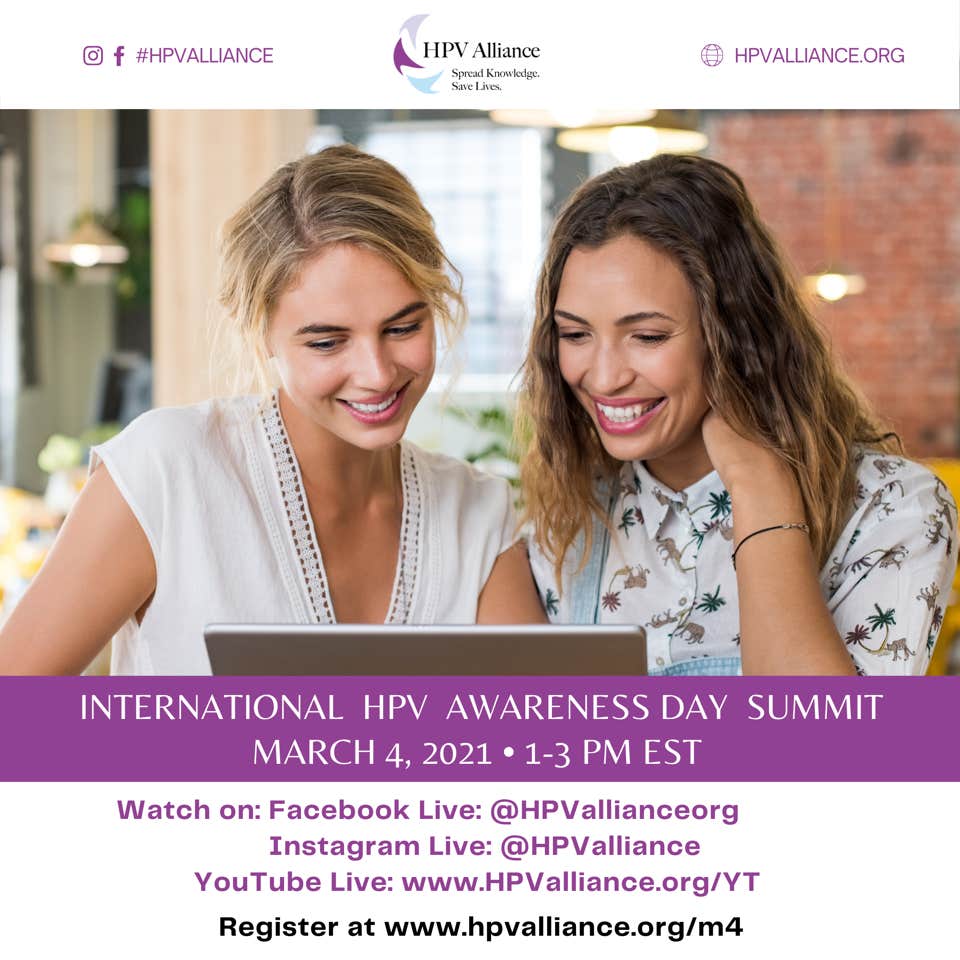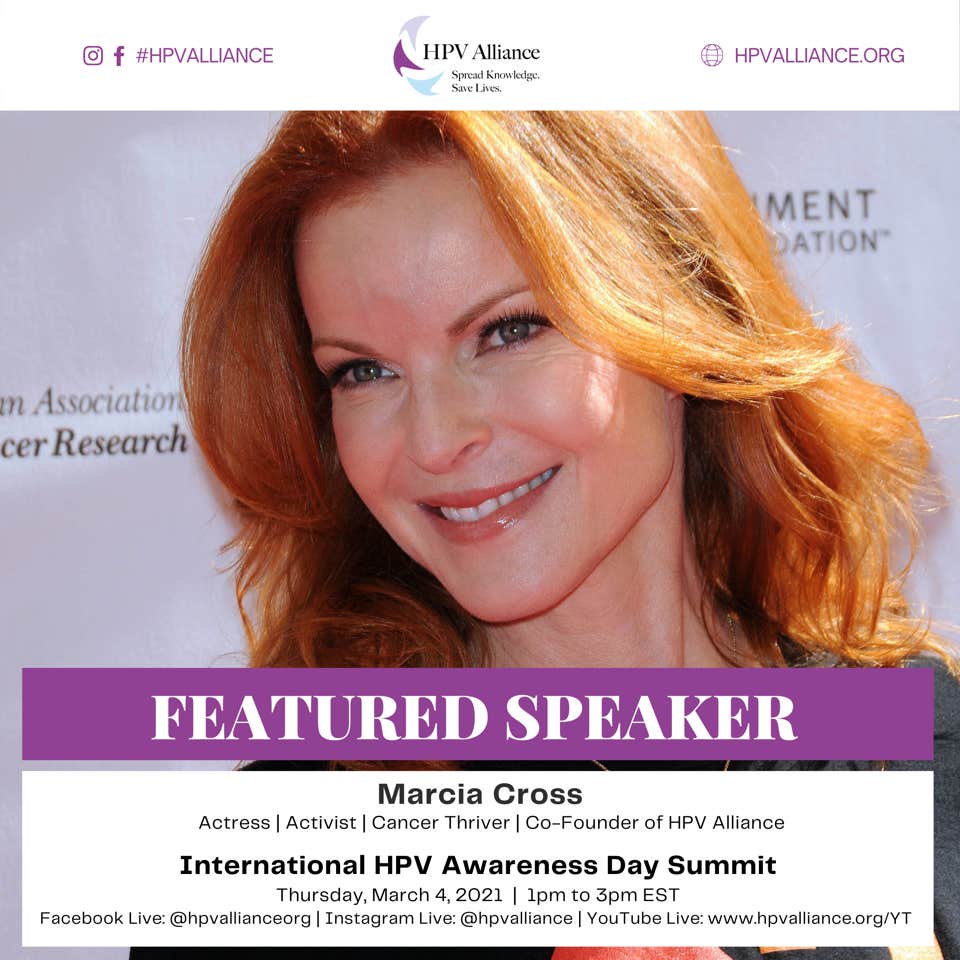12 Myths About HPV — Debunked
Leave your assumptions at the door.
 Shutterstock / Gemma Chua Tran
Shutterstock / Gemma Chua Tran It’s International HPV Awareness Day on March 4, which means it’s about time we discuss some of the myths surrounding this virus.
HPV, or human papillomavirus, is a hugely prevalent virus that is passed on from skin-to-skin contact, particularly during sexual activity.
However, despite how common it is, so many people are ill-informed about some of the risk factors, causes, and so much more.
Most people will contract HPV in their lifetime and while it’s common for the body to fight it off before it becomes a risk, there is no actual treatment for the virus.
That’s why it is so important to stay on top of HPV so it doesn’t cause other health risks over time.
And what better way to be informed about HPV than to bust down some of the major misconceptions associated with the virus.
Here are 12 things people get wrong about HPV.
Ahead of HPV Alliance's live-streamed HPV Awareness Summit, here are some of the leading myths you should know about HPV.

1. Only women can get HPV.
This is a big misconception about HPV and lots of other cancers that are most often associated with women.
75% of the US population, men and women, has had HPV at some point in their lives. Right now in the US, there are 43 million Americans with HPV and 13 million people become infected each year.
HPV does not discriminate based on gender, it is present in approximately 31% of penile cancer cases in men.
2. HPV is rare.
Refer to above! HPV is so common that nearly all sexually active men and women will get it at some point in their lives. So it’s important to be aware of.
That said, don’t get too freaked out. There are over 200 types of HPV and only 13 are considered high-risk for causing cancer.
Most of the time our bodies can clear the infection but it never hurts to get tested regularly so you can monitor your HPV. If not carefully managed, certain types of HPV can cause cancer.
3. You’ll show symptoms if you get.
Nope! HPV often has no signs or symptoms which is why it is so prevalent and regularly goes untreated.
Pap smear tests are used to screen for HPV and other related abnormalities. It is generally recommended to start getting these test at 21 years old and repeat every 3 years.
For those with male genitalia, unfortunately, there is currently no approved method of screening for HPV.
4. People who get HPV are sexually promiscuous.
HPV is considered one of the most common STIs but it is actually spread by skin-to-skin contact in general, not necessarily sex.
That means that you're just as likely to get it in your first sexual encounter as you are in any other. And while it is unlikely to contract HPV outside of sex, it’s not impossible, either.
HPV can also be dormant in the body for up to 20 years so even if you’re in a long-term relationship with one sexual partner, you’re not immune from being diagnosed with the virus.
5. Condoms prevent HPV.
Because HPV lives on the skin, it can be active around the whole genital area meaning even a condom won’t prevent it from spreading.
HPV can therefore be transmitted through sexual contact of any kind including any touching or genital to genital contact, as well as oral, vaginal, and anal sex.
6. Only young people get HPV.
This myth comes from the fact that young people are more sexually active, however, young people also have stronger immune systems and are more likely to clear the infection.
Since HPV is so prevalent, older people are still at risk, and given that HPV can be dormant for so long, you can still have the virus later in life.
7. Smoking can’t cause HPV.
Smoking is a highly-advertised risk factor for lung cancers and other diseases, but many don’t realize it can be a huge cause behind HPV developing into cervical or other related cancers.
Smoking lowers immune systems, making them less equipped to fight off HPV. It also damages the DNA cells in the cervix, making it more susceptible to cancer.
8. If you get HPV you will get cancer.
Even though 99.7% of all cervical cancers are caused by HPV, it is not true that 99.7% of people with HPV will get cancer.
In fact, most people do not get cancer even if they do contract HPV but regular tests are still extremely important.
9. The HPV vaccine causes other problems.
The most common side effect of the HPV vaccine is slight pain and redness in the arm.
The vaccine has been hugely effective in reducing the effects of HPV but still, many people are reluctant to get it. The vaccine is available to both boys and girls and is most effective if received in the early teens.
The vaccine also has nothing to do with sex and there is no correlation between teenagers getting the vaccine and becoming sexually active at a younger age.
10. The HPV vaccine protects you for life.
Right now, research states the vaccine is effective for at least 10 years. Experts constantly reviewing this so while it’s not known yet if a booster shot is needed after 10 years, make sure to be aware if your vaccine is 10 years old so you can find the necessary information then.
11. You don’t need to get Pap smeart tests if you got the HPV vaccine.
This is a big no-no that needs to be overstated now that more and more people are getting vaccinated.
The vaccine does not protect against all kinds of HPV nor does it prevent cervical or any other kind of cancer. A Pap smear test every 3 years can keep an eye on any other problems that could occur.
12. Healthy people won’t get HPV.
While it’s true that a strong immune system can fight off some forms of HPV, this is not a foolproof method.
One look at the prevalence of HPV shows that really anyone can get it so everyone should be aware of the need to get tested and treated, or even vaccinated.
That said, you can lower your risk by avoiding smoking and staying healthy in general.
You may be one of the 43 million Americans with HPV or become one of the 13 million newly infected each year.*
Join HPV Alliance, Moffitt Cancer Center, and AdventHealth Thursday, March 4, 2021, at 1 PM EST for a Facebook Live event with leading physicians, researchers, oncologists, and celebrities impacted by HPV who will dispel HPV myths, supply facts on prevention, give advice on staying healthy with HPV, share compelling stories of diagnosis, and provide empowering tips for self-advocacy.
During the event, HPV Alliance will also share an Athleta promo code good for 20% off items at Athleta.com.
Register at www.hpvalliance.org/m4
Ways to watch:
Facebook Live: @hpvallianceorg
Instagram Live: @hpvalliance
YouTube Live: www.hpvalliance.org/YT

Think you may have HPV, or want to learn more? Check out the CDC's HPV Fact Sheet and their HPV Topic Page, which includes information about HPV symptoms, screening, the link between HPV and cancer, and more.
Alice Kelly is a writer living in Brooklyn, New York. Catch her covering all things social justice, news, and entertainment.

